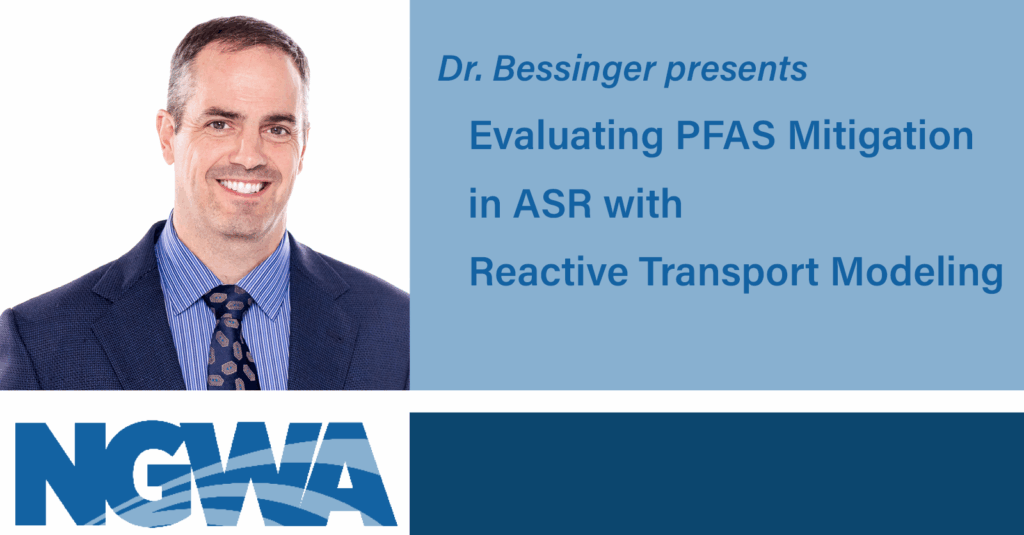
Brad Bessinger, PhD, PG, RG, LG, Summit Water Resources, LLC Principal Geochemist will present “Reactive Transport Modeling to Evaluate PFAS Mitigation in Aquifer Storage and Recovery (ASR)” at the National Ground Water Association (NGWA) Managed Aquifer Recharge Conference taking place on September 23 and 24, 2025 in Denver, Colorado.
According to the conference website: Managed aquifer recharge (MAR) is the purposeful recharge of water to aquifers for later recovery or other benefits. MAR is an increasingly important tool for mitigating the economic, environmental, and public health impacts of water shortages. While practiced for decades, MAR is of growing interest to many communities. This conference provides a forum for sharing technical, regulatory, and institutional lessons to develop successful recharge projects.
Abstract: Reactive Transport Modeling to Evaluate PFAS Mitigation in Aquifer Storage and Recovery
Co-Authors: Brad Bessinger, PhD, PG, RG; Jason Melady, RG, CWRE; DeEtta Fosbury, RG; Ellen Svadlenak, LG
Per- and polyfluoroalkyl substances (PFAS) are increasingly detected in water supply aquifers, raising concerns for aquifer storage and recovery (ASR) operations. This study presents a reactive transport modeling approach to evaluate strategies for mitigating PFAS during ASR operations in an impacted Pacific Northwest aquifer. The model incorporated site-specific hydrogeologic parameters and a thermodynamic database that simulated PFAS adsorption to distinct aquifer mineral phases, including organic matter, clays, and iron oxyhydroxides. Simulations accounted for spatial heterogeneity in aquifer properties and variable adsorption potential of individual PFAS compounds. A key goal of the modeling effort was to assess how ASR operational parameters—such as injection volume, cycling frequency, and chemical amendments—could improve recovered water quality. Results indicate that ASR cycling can reduce PFAS concentrations through aquifer conditioning, with the extent of reduction strongly influenced by groundwater geochemistry and mineralogy. Results also indicate that targeted chemical amendments and tailored changes to recharge water chemistry can reduce PFAS mobilization, enhance ASR’s long-term effectiveness, and thereby potentially offer a cost-effective alternative to ex-situ treatment, ultimately improving water quality in impacted aquifers. In conclusion, reactive transport modeling provides a robust framework for evaluating PFAS fate and transport during ASR and supports the development of operational and remedial strategies to safeguard groundwater quality and enhance the resilience of water supply systems.
